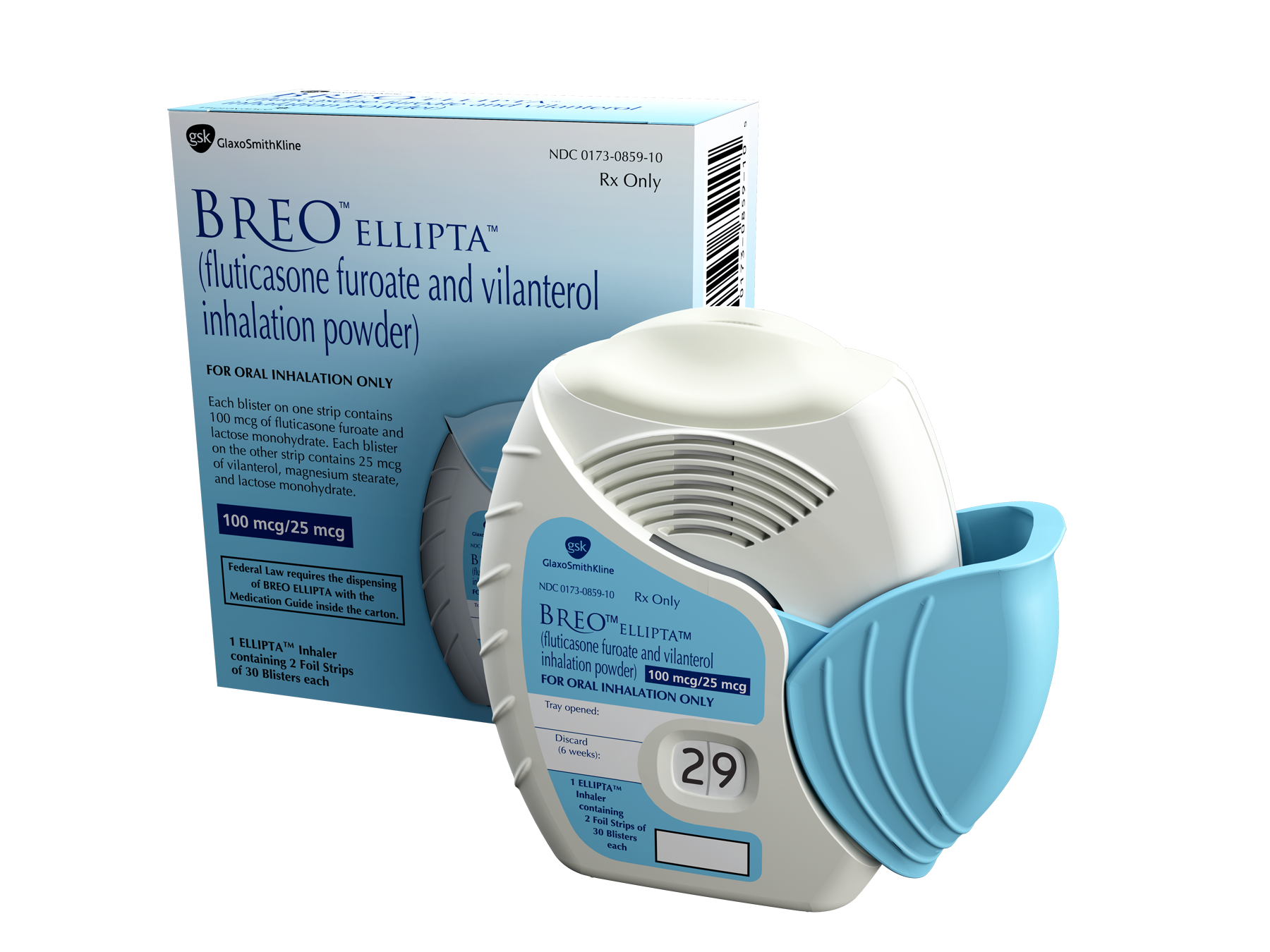GlaxoSmithKline (GSK) and VIBATIV® (telavancin) developer Theravance Biopharma, have just been granted Canadian approval for Breo Ellipta, a once-a-day maintenance treatment for asthma in patients who are at least 18 years old and have reversible obstructive airways disease.
Ellipta, a dry power inhaler, delivers a fixed-dose combination of inhaled corticosteroid fluticasone furoate and long-acting beta2-agonist (LABA) vilanterol. In July 2013, BREO® ELLIPTA® was also approved in Canada as a maintenance treatment for airflow obstruction in patients with COPD, including chronic bronchitis and/or emphysema, and to reduce exacerbations of COPD. Breo Ellipta will soon be available as an asthma treatment in the country in two dosages: 100/25mcg and 200/25mcg.
GSK Canada country medical officer Sally Taylor said, “Breo Ellipta, a GSK asthma treatment approved in Canada now provides physicians with a once-daily treatment option delivered via the Ellipta inhaler to meet the needs of appropriate adult patients.”
Theravance president and chief executive officer Michael Aguiar said: “With today’s approval of Breo Ellipta in Canada, we are pleased to expand the number of patients able to benefit from this important medicine. As a once-daily ICS/LABA treatment for adults with asthma, people suffering from this chronic condition now have an additional option.”
RELVAR®/BREO® ELLIPTA® has been approved in 58 countries for marketing and has been launched in 36 countries as of December 31, 2014.
In other recent asthma news, a study recently published in the journal Annals of Allergy, Asthma and Immunology showed that inhaled tiotropium is a safe and effective therapy for adolescents with moderate to severe asthma. The study conducted by researchers at the Hospital Central de las Fuerzas Armadas in Uruguay and the Pontificia Universidad Católica de Chile in Chile, and is entitled “Tiotropium for the treatment of adolescents with moderate to severe symptomatic asthma: a systematic review with meta-analysis.”
Researchers found that tiotropium therapy was associated with a significant improvement in FEV1 in comparison to patients under a placebo treatment. In addition, tiotropium was also found to reduce the number of patients experiencing a worse asthma exacerbation or episode, and also the number of patients with at least one exacerbation in comparison to patients in the placebo group. The team found no significant differences between tiotropium therapy and placebo in terms of rescue medication use, withdrawals, adverse events and serious adverse events.

